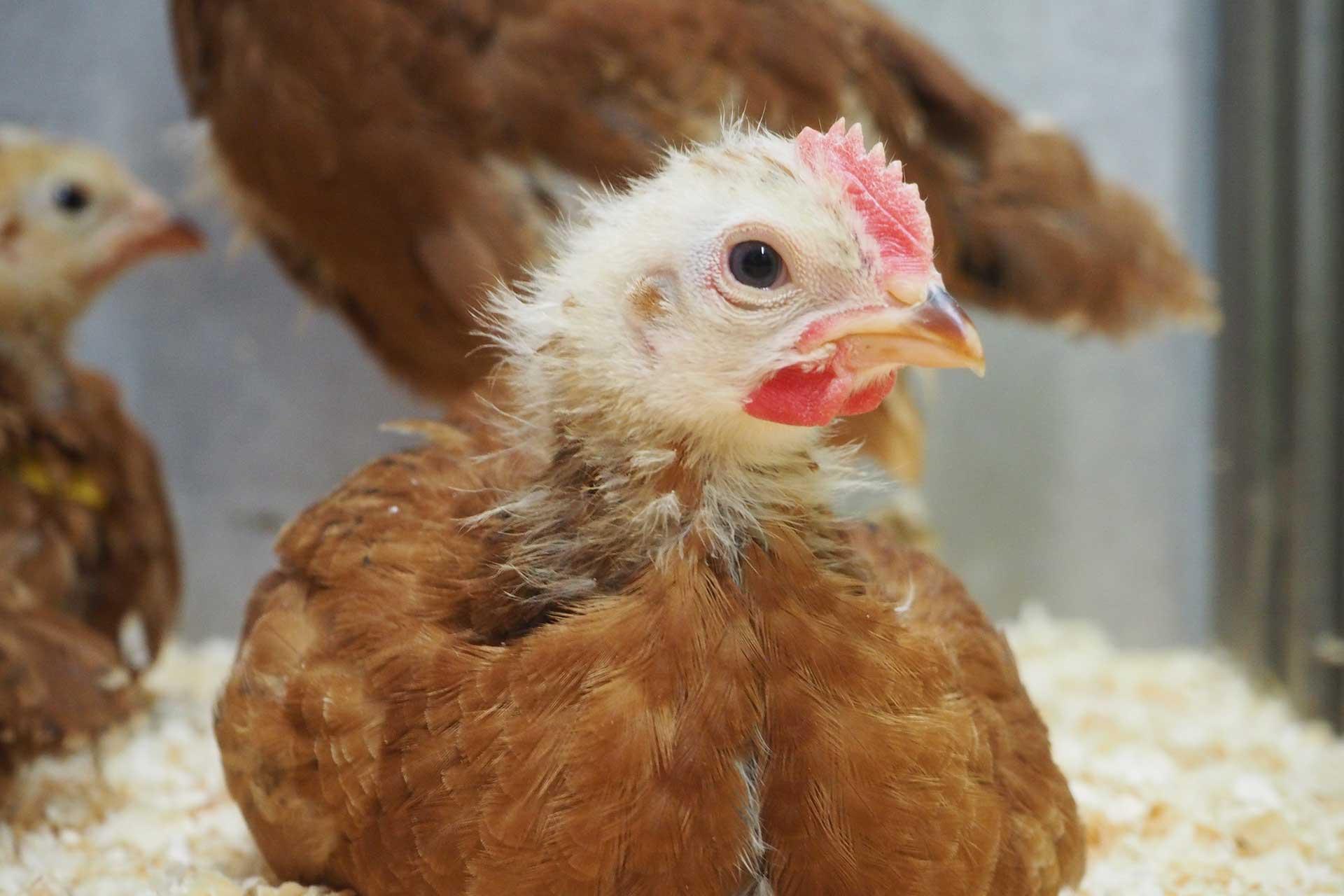A grant has been awarded to Dr Andrew Broadbent at The Pirbright Institute, which will fund the development of laboratory techniques for studying poultry viral diseases without the need to infect live birds.
The new research, funded by the National Centre for the Replacement Refinement and Reduction of Animals in Research (NC3Rs), will focus on three economically important poultry infections: infectious bursal disease virus, avian leukosis virus, and reticuloendotheliosis virus. These viruses infect cells of the immune system called B cells, causing both illness and immunodeficiency, which can make birds more susceptible to secondary infections, some of which can infect people.
Until recently, studying how these viruses interact with the cells they infect has been difficult to achieve in the laboratory as the B cells die when they are removed from the chickens, necessitating the use of live infected birds in research studies. However, Pirbright scientists have discovered a way to prolong the life of chicken B cells in the lab sufficiently long enough to carry out this crucial research.
This NC3Rs grant aims to test whether these cells can be used as a model to study virus infection and produce reliable results comparable to experiments carried out in live chickens. Scientists will also ascertain whether the cells can be used to replace chickens that are needed to produce virus stocks, and determine if they can be used to screen vaccine candidates. Collaborators at Imperial College London will further the investigations by analysing how the cells respond genetically to infection using modern technologies such as RNA sequencing.
This work could have a worldwide impact on the study of avian immunosuppressive viruses. If scientists researching these viruses around the world were to adopt the new laboratory methods, it is estimated that over 5,000 fewer chickens would be required for experimental studies each year. Furthermore, if these viruses are better controlled as a result of this work, the overall welfare of birds would be improved.
Dr Andrew Broadbent, an Institute Fellow at Pirbright, said: “We need improved methods for controlling these viruses and in order to realise that goal we need better tools to study them. Traditionally, research in this field has used a lot of infected birds; we hope that we can replace their use with our primary B cell model to improve our understanding of virus-cell interactions and test the ability of vaccines to produce an immune response. Not only would this help improve current control methods, it would reduce the number of birds required for research.”
“We anticipate that we can build on this research to better understand differences between virus strains, co-infections with multiple viruses, how live attenuated vaccines interact with B cells and how some inbred lines of chickens have mild diseases when others have more severe disease.”
The successful application of this grant is just one example of how Pirbright scientists are working to reduce, refine and replace research using animals. In 2014, the Institute also signed the Concordat on Openness on Animal Research, and in doing so committed to being more open with the public about the animal research it carries out. Find out more about Pirbright’s use of animals in research and commitment to the 3Rs.
